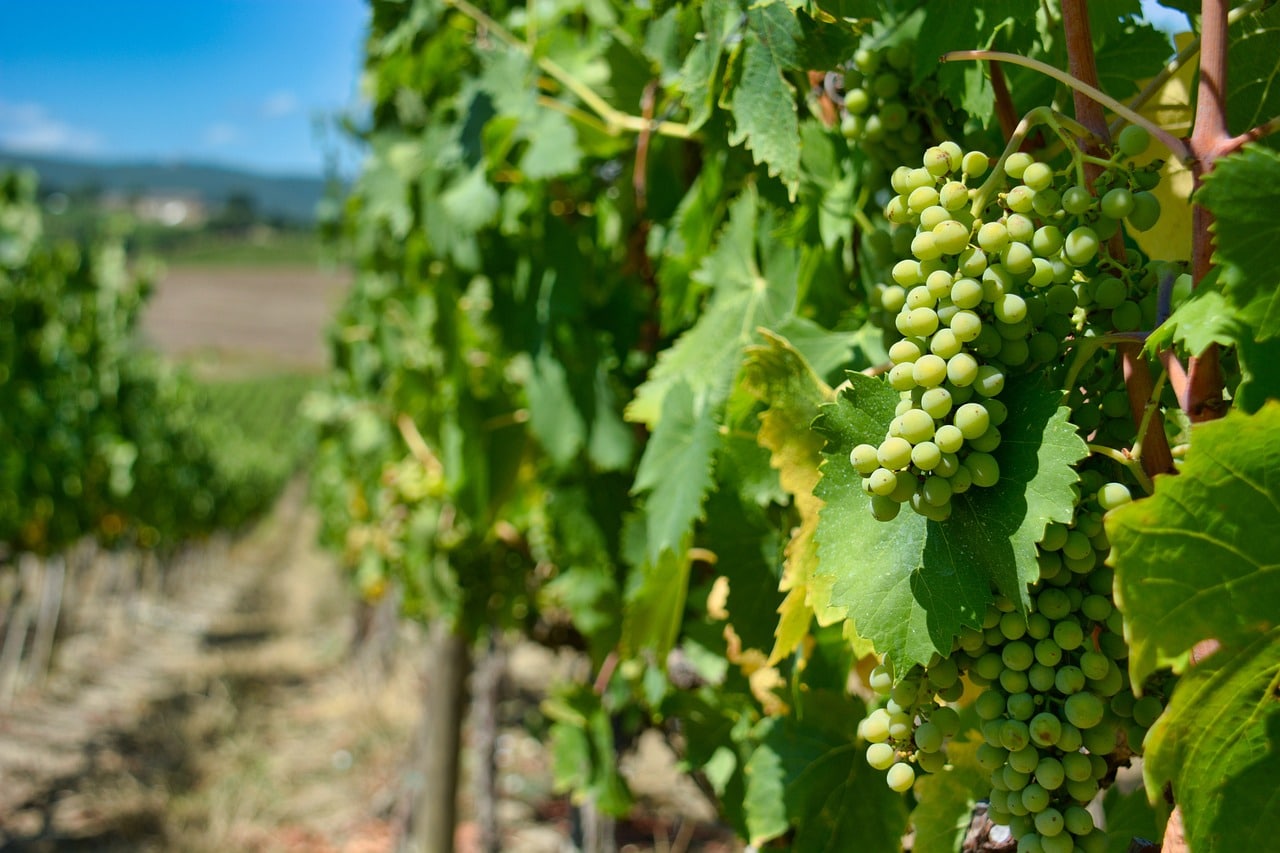
The Grape Debate: The Quest for Perfect Grapes in Modern Wine Production
Without good grapes how could you have good wine? But what makes a healthy, flavorful grape and how have winemakers come to raise such healthy grapes for modern wine production?
Tags: wine production, grapes, farming, terroir
We have all had an incredible glass of wine. Whether you prefer whites, reds, rosés, bubblies, or anything in between, sometimes a good glass of wine just… clicks. Have you ever wondered what makes a glass of wine so good? While there is plenty to be said about the fermenting process, aging, handling, and everything else which goes into a bottle of wine, a good glass starts with the fruit: grapes. Without good grapes how could you have good wine? But what makes a healthy, flavorful grape and how have winemakers come to raise such grapes at scale?
The Beginning:
As with every fruit we consume, grapes originally grew as a naturally occurring fruit in a small section of the world. Most evidence points to the earliest domestication of grapes as a food source occurred in modern day Egypt and Syria around 4000 BCE, but the exact origin of the modern day Vitis vinifera is likely to remain unknown for all time. Before the greater Mediterranean basin was raising grapes, however, ancient Georgian farmers were making wine from wild grapes growing in the southern caucasus.
What Made Early Wine Good?:
Being blunt, early wine was probably not very good. While it certainly had to be good enough to pursue making better, before the science of winemaking was really developed there was a lot of trial and error—potentially even batches of wine which were spoiled to the point of being poisoned or full of botulism-inducing bacteria. Much of the pleasant aspects of wine made in the early history of the product were “luck of the draw.” Early winemakers could only use wild yeasts occurring naturally on grape skins and more or less guess which of the hundreds of indigenous grape species growing throughout the caucasus would taste good in a final batch of wine.
While early wine was certainly very different from the wine we all enjoy today, those early winemakers did start to develop the baseline for grape standards which modern winemakers use today. It is thanks to those early winemakers that vineyards today know what to consider when looking at the health of their grapes.
What Makes a Healthy Grape?:
It is important to first differentiate between grapes grown for raw consumption and those grown for winemaking. While there is some overlap in grapes which are commonly eaten and those which are fermented into wine, it is generally considered that these two utilizations have different expectations from and for their respective crops. We will be considering only what makes a grape meant for wine healthy.
It should also be noted that a healthy grape is not inherently a good grape, especially when it comes to grapes suited for wine. Sometimes even the healthiest fruits just are not pleasing to the palate, but virtually no unhealthy grapes will be palatable; so to make good wine, no matter what, you need a healthy grape.
The health of a grapevine can be a challenge to maintain. Grapes are typically very sensitive to environmental change with different varieties thriving in highly specialized terroirs, meaning that, should that growing environment change suddenly, the crops are likely to fail. While every varietal of grape needs its’ own specific growing conditions, there are some basic rules which help guarantee a healthy crop:
- Nutrient Rich Soil – As with any crop, renewing the nutrient value of the soil in which grapes are growing is vital to the success of the fruit. Some of the most important soil nutrients to the health of a grape are:
- Nitrogen
- Potassium
- Zinc
- Iron
- Copper
- Sunlight – Grapes are an incredibly sun-reliant crop. Giving the vines abundant sunlight helps to ensure that the photosynthetic processes within the plant function in a way which develops healthy levels of sugar in the final fruit. This sun time, however, varies from varietal to varietal and too much time in the sun can be detrimental to the health of a crop.
- Pruning – The healthiest grapes come from well-pruned vines. This may seem counterintuitive to what defines, by modern production standards, a “successful” crop. With a lower fruit-yield, the vine has an opportunity to more highly develop each individual fruit.
- Age of Vines – The best grapes come from the oldest vines. When discussing wine, you will often hear mention of the age of the vineyard and more specifically the vines which grow there. This is due to a multitude of factors, but some of the most important are:
- Resilience – Older vines have proven that they are adaptive and dynamic to environmental changes.
- Natural Pruning – Grapevines, over time, do a degree of self-pruning. Vines will lose weaker sections and produce fewer, typically smaller fruits on the remaining vines, meaning that the fruits are healthier.
- Root Health – Older plants have more extensive root systems, allowing the plant to better absorb the available nutrients from the surrounding soil.
Typically vines begin to display “old vine” health after around 25 years of production, but reach true maturity around 50 years of production.
Conclusion:
Grapes are a persnickety crop, requiring very variety-specific care in order to ensure a healthy yield. While early wines may not have been the same tannic, rich drinks we enjoy today, they did lay the background for modern vineyard operators to produce the healthiest grapes for production today.
Silk Road Wines is a veteran-owned Georgian wines importer specializing in traditionally produced wines made from the healthiest grapes. For more information about us, our wines, and those who make them, please take a look at Our Story. With any questions for our team please contact us here.


